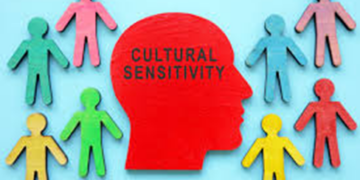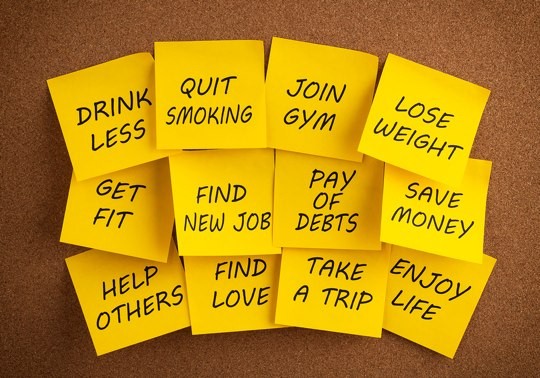
Life is a series of negotiations because we go through a series of natural and spontaneous changes of which success is not always an outcome. An average adult makes about 35,000 conscious decisions each day. Each decision, of course, carries certain consequences with it that are both good and bad. We encounter several negotiation situations each day, each moment/each hour. Yet, most people misunderstand a negotiator as someone who can manipulate people into getting what he wants.
What we don’t realize is that almost every conversation we have, each day, is some kind of negotiation. We all use our strength to tackle all kinds of situations, we go through ‘highs and lows.’ We go through moments when we feel a sense of loss, confusion and self-doubt. In times like these it is only our determination that comes to our rescue and helps us to stand tall and save our self-worth.
Negotiation is a dialogue between two or more parties to resolve points of difference, gain an advantage for an individual or group of people for positive outcomes to satisfy various interests. The parties aspire to agree on matters. Whenever there is a want, desire or a need present on either side, we are in a negotiation. And we every day have wants, desires and needs. The thing that trip up people is they knowingly or unknowingly get into action of negotiation as bargaining. For example, buying vegetables, fruits, milk, eggs, bread, what to cook for meal, getting the house cleaned from maids, getting the garden watered, which mattresses to use on bed, when to change curtains of windows, whether to attend a function or not, planning a holiday, planning a function ….so many negotiations we conclude before making decisions.
There are bigger negotiations we go for such as: buying a car, negotiating a salary, buying a home, renegotiating rent, choosing a life partner, investment decisions, health related decisions etc. As we mature in life, we take emotional intelligence and intuition to the next level, before negotiating. Emotional intelligence is critical for mastering negotiation skill. Emotional Intelligence is the ability to manage both your own emotions and understand the emotions of people around you.
We learn to negotiate better when we go with an open mind, we think and plan, when we articulate our thoughts, we succeed. Perseverance is most important requirement while negotiating. When we detach ourselves from the result negotiation works out better. Also, any negotiation is not one sided, we should think about other side too. A very important point is at times we get confused with want exactly we want. knowledge of the subject matter being negotiated, ability to think clearly and rapidly under pressure and uncertainty also matters. Most important skill in negotiation is listening skill.
In business negotiations most negotiations are sharp but need to be dealt with calm and composed mind, carrying the figures in head, quantifying every trade-off is fundamental to the deal. Or that’s what the science of game theory says. In real life however, people are not always rational under pressure, when time is short, and the stakes are high. In business, the biggest challenge in a negotiation is to stop emotions from overtaking logic.
Warren Buffett is one of the world’s most successful investors and has built an impressive, estimated wealth of $85.3 billion. He has also earned a strong reputation as one of the world’s most skilled negotiators. Buffet is known for doing his research and preparing for negotiations with meticulous detail. His ability to identify value, negotiate favourable terms, and build strong relationships has been key to his incredible success in the business world. He keeps his ego out of the door. He is ruthlessly unemotional while negotiating.
Indira Nooyi, CEO of PepsiCo is known for her flexibility during negotiations. She always was open to alternative solutions and willing to adjust her stance based on new information or changing circumstances. This adaptability allowed her to navigate complex deals successfully and overcome unexpected challenges.
Nooyi believed in thorough preparation before entering any negotiation. Whether it was a merger deal or a supplier contract, she ensured that she and her team were well-informed about the industry landscape, the counterpart’s interests, and potential areas of compromise. She always built strong relationships with stakeholders. She looked at alternative solutions willingness to adjust her decisions based on new information or changing circumstances. Also, her communication skills made her a popular leader.
When we look at negotiation, it’s basically discovering what the other side wants, we must try to uncover their reasoning and motives. Nelson Mandela is remembered for being one of the most talented negotiators in history. He served as the first president of South Africa from 1994 to 1999 and used his strong negotiation skills to fight apartheid and secure a more peaceful society for millions of South African people. Mandela is well known for his resilience, patience, and strategic thinking. It took him decades to achieve his goals, and his focus on the greater good played a crucial role in ensuring a peaceful transition to democracy.
When we don’t recognize a negotiation as a negotiation, it’s much harder to be successful in it. In both personal and professional realms, the ability to negotiate effectively is an art and science. Science as a metaphor for negotiation emphasizes the strategic, analytical, and data-driven aspects of negotiation. It highlights the importance of preparation, research, and understanding the underlying dynamics of negotiation that can make the difference between success and failed opportunities.











































